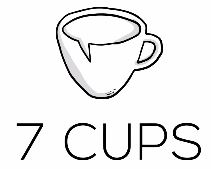Without the pain, there'd be no learning; without the hurting, we'd never change.
- Kate Bush |
Swellness
 Swellness: Mental Health can lead to Physical Well-Being!
Swellness: Mental Health can lead to Physical Well-Being!
Building emotional strength without drugs is the most rewarding and enduring way to deal with difficult feelings. Like body-building, building emotional strength requires dedication and perseverance. We must accept that this type of deep power can only be built in small increments; little by little, day by day. There are no shortcuts to discipline!
Things that last take time to build. One of the hardest parts is that we do much of this work on our own, away from others, unlike muscle-building that can occur with friends, families and even people we don’t know.
Facing Difficult Feelings
We’ve created several documents to support you as you explore challenging feelings:
Do-It-Yourself Mental Health
Help Yourself Therapy
SELF-Therapy For People Who ENJOY Learning About Themselves
HelpYourselfTherapy.com is a website that offers free, confidential, practical advice from a therapist. The Self-Therapy model is easy to understand and self-disclosure is never needed. Everything is completely confidential. Click on the link below to view the list of topics from the Self-Therapy training program.
https://helpyourselftherapy.com/therapy-training-program/
7 Cups 
https://www.7cups.com/
Whether you are going through a challenging time or just want to talk to someone, at 7 Cups you’ll find a path connecting you to kind people and helping you develop new skills to solve your problems.
Donated Pages:
Thank you Dr. Zimbardo, Dr. Wang and Scott Young!
Resisting Influence By Dr. Philip Zimbardo and Dr. Cindy Wang
Meditation
Everything in this section available online only
From The Chopra Center website: Meditation can remove stress and replace it with a dose of inner peace. It’s one of the best tools we have to balance our emotions, deal with physical and psychological distress, and promote the peace of the present moment. Try one of these guided meditations, each with a unique theme. Meditations below range from five minutes to one hour. https://chopra.com/app
UCLA Guided Meditations https://www.uclahealth.org/marc/mindful-meditations
Swellness
(Yes, it is spelled correctly)
Health. Strength. Tenacity. Flexibility. Durability. Resilience. Power. Discipline. Vigor.
These words can be used to describe both mental and physical characteristics. Swellness is the idea that our physical and mental well-being cannot be separated; they are dependent upon each other. It is the belief that we must take care of our mind to take care of our body, and we need to take care of our body to take care of our mind; that health is psychosomatic / somapsychotic and that those words can be applied to wellness as well as to illness. Swellness exists in those who have overcome illnesses and physical setbacks with powerful positive beliefs about their ability to survive and thrive. Swellness is not a goal, it is a continuous process.
A few considerations for healthy minds and healthy bodies:
When our minds are in turmoil, often our guts and/or our muscles are, too.
When our neck and shoulders ache from stress, we may struggle to feel happy or optimistic.
We need:
Strength in our: heart, character, muscles, mind
Fresh: air; water, foods, ideas
Connections: to others, to nature, to our authentic selves
Important Considerations for PHYSICAL HEALTH
Air. Water. Food. Attitude.
Air:
Oxygen is ultimately the fuel that allows our cells to produce energy from the food we eat.
It is needed by your body cells to keep them alive. Being able to move and think require oxygen. And breathing deeply is a great stress reliever by decreasing heart rate, blood pressure and muscle tension.
Water:
About 60% of the human body is water!
According to the US Geological Survey, water serves a number of functions.
A vital nutrient to the life of every cell, water acts first as a building material.
The carbohydrates and proteins that our bodies use as food are metabolized and transported by water in the bloodstream
It assists in flushing waste and toxins mainly through urination.
It acts as a shock absorber for brain, spinal cord, and fetus.
It forms saliva.
It lubricates joints.
It regulates our internal body temperature by sweating and respiration.
Food:
Growing food is not easy. When we harvest our lettuce, rhubarb, pears, etc., we find it not only provides nourishment, but also connects us in gratitude to the farmers and farm-workers who keep us alive. Eating healthy food makes us more productive, reduces stress, boosts happiness, controls weight gain, saves money (including medical expenses), helps to prevent disease, and increases energy. Cooking meals from scratch increases our connection to the earth, to the people who grow our food, and to each other…all important psychological aspects for belonging. Food for thought!
Attitude:
Add a healthy attitude to good nutrition and you have a recipe for longer life and better health. A University of Illinois (UI) study found that “feeling positive about your life, not stressed out, not depressed contributes to both longevity and better health”, and that “anxiety, depression, a lack of enjoyment of daily activities and pessimism all are associated with higher rates of disease and a shorter lifespan.” UI professor emeritus of psychology Ed Diener added, “Current health recommendations focus on four things: avoid obesity, eat right, don’t smoke, and exercise. It may be time to add ‘be happy and avoid chronic anger and depression’ to the list.”
Important Considerations for MENTAL HEALTH
Security. Belonging. Autonomy. Meaning.
Security: safety / having our needs met / enough money / warm and out of the elements
We are barraged with stories of terrible and depressing events in the news. When we have the choice to seek out information, we still choose to focus on bad, scary and negative stories. We worry about the security of our job, our health, our home, our children, our plans for the future. Security issues may also include staying in an unhealthy relationship/situation because it is known and ‘normal’, even though it may be disrespectful and painful. The unknown may be scarier. Fear of failing and rejection can be paralyzing. The physical and mental stress from elevated levels of fear and worry can cause us to feel weak, sick, overwhelmed, untrusting, depressed, disconnected. We may seek medication to reduce worry and anxiety.
Belonging: acceptance / relationships / respect / understanding
A basic human need is to belong to a group, a family, a community. We have a deep desire to feel we are valuable to society and can be acknowledged and accepted for who we are. We can ‘charge our batteries’ when we engaging with others by playing a game, volunteering, talking, preparing a meal, working on a project or simply sharing time together. In person. (The internet creates and maintains connections, but they cannot replace live interaction.) Healthy relationships require respect: so give it and get it. Or go.
Autonomy: agency / power / freedom
It is important to feel we are in control of our destiny and capable to do things for ourselves. (We are generally far more capable than we tend to believe we are.) We need to feel we are valuable and offer something unique. A belief in agency or self-efficacy plays a crucial role in physical health and well-being. We have the power to say ‘no’ and create clear boundaries. We have the power to say ‘yes’ and make lasting commitments. We can learn new things. We can get physically invigorated by exercising our power. Acknowledging and exercising our power enhances healing and supports physical and mental health.
Meaning: sense of purpose / hope / belief / spirituality / morality
Regardless of how we were raised, we each possess a truth that is unique to us. We have our own set of beliefs, our own way of making sense of the world, and an individualized system for how to respond to challenges. We feel hope if we wish to and can plan for a future we believe we can create. We are the captains of our ships and we decide where we are going and why. Meaning is how we make sense of our existence, which contributes to our health and well-being. To live without meaning incites suffering. Viktor Frankl believed that a firm sense of meaning is essential for optimal human development.
Some ways we can become weak or ill:
These are just a few for example. Consider things that deplete your mental and physical strength:
Blaming (when we blame, we give up our power)
Eating unhealthy food, or unhealthy amounts of food (including processed sugars, carbs and fats)
Not drinking enough water (be sure to drink more water than other beverages)
Giving up, despair, feeling defeated or believing we can’t be ourselves
Mental and physical exhaustion
Letting negativity and pessimism dominate our thoughts
Cheating, lying, trying to get something ‘over’ on someone else
Lack of exercise and fresh air
Addictions: drugs, alcohol, gambling, unhealthy relationships, food, gaming, shopping, TV/internet
Feeling disconnected from nature and the world
Personal Litmus Test: When you feel pressed to make a decision about doing something new, or to buy a thing, service or ideology that might feel unhealthy or outside of your values, consider asking:
Does this strengthen me? Or is it a counterfeit to strength? (pretending to make me strong)
Is it aligned with my goals? My values? My swellness?
Does this strengthen my community as a whole or just a faction / fraction?
Does this respect all things? And elements shared by all things (such as water, earth, air)?
Does this impede anyone’s travel on their own path to self-actualization or swellness?
Then double check everything and play ‘Devil’s Advocate’
Some Things That Help Us Feel Strong:
(Share your thoughts, let’s build this list together!)
Increase our awareness of, and our dedication to, satisfying our needs – which are the needs of others:
o Acknowledgement: for our unique experiences, ideas and perspective in the world
o Agency: feeling like you are in charge of your life
o Autonomy: the ability to stand on your own
o Belonging: acceptance for being who we are; a unique and engaged part of the group
o Character: building solid morals, values, virtues, resolve
o Communicating: sharing your thoughts; listening to the thoughts of others
o Compassion: finding compassion for others; we will seek it sometimes, too
o Confidence: believing you are capable
o Cooking: your meals from scratch; with others if you can
o Cooperation: working with others on a shared project
o Drinking: plenty of water!
o Eating: healthy, fresh and home-cooked food including plenty of fruits and vegetables
o Elevate your heart-rate: by walking, running, riding, rowing, etc. for at least 30 minutes every day
o Exercise / fresh air: are both great for physical and mental health
o Faith: in your abilities, that you are valuable, that things can get better, spiritual faith
o Gratitude: for what we have, for what others do, for a new day to start fresh
o Goals: setting and reaching achievable goals
o Flexibility: be ready to flow with change…bend, don’t break! …for mental and physical health
o Healthy mental engagement: conversations, problem solving, imagining possibilities, debateing
o Healthy physical engagement: caring for plants, walking a dog, mowing our neighbor’s lawn
o Humanness: listening, empathizing, caring, feeling excitement and encouragement
o Humor: helpful to lighten our burden for a minute; add a new perspective
o Identity: understanding and accepting who we are…with our unique skills, values, attributes, character traits, and relationships with others. Our identity changes as we change; it is fluid.
o Meaning: looking at why we do what we do: What drives us? What do we believe and why do we believe it? Meaning gives us the ‘horsepower’ to persevere through tough stuff
o Music: making and listening to music alone and with others
o Power: feeling like we are in charge of our health, our success, building supportive relationships
o Opportunity: finding and creating opportunity; feeling like we’re not stuck
o Outdoors: taking walks in the sun, stargazing at night, planting a garden, connecting with nature
o Reading / learning: theories, stories, newspapers; discovering great diversity and creativity
o Reducing: processed sugars, saturated fats, habits we don’t like, self-defeating thinking
o Reflecting: on your values, your path, your reasons to be grateful, your vision for yourself, your next moves; long-term goals, the wonderful people in your life, what you can offer the next generation
o Resilience: our ability to adapt to stress and adversity, and maybe grow stronger because of it
o Respect: Giving it, expecting it, receiving it, and communicating it. Variety is the spice of life.
o Satisfaction: setting achievable goals and being grateful for what we have
o Success: measured by relationships and reaching goals; not by an accumulation of money or stuff
o Trust: believing in yourself and developing trust with others. Trust is very important for good health.
o Ubuntu: realizing everything is connected; support all systems and people so they can support you
o Value: reflecting on we do that makes life better, and the unique things we bring ‘to the table’
o Volunteering: Engaging with those who need our unique gifts
o Yoga / meditation / stretching / rest: taking mental and physical time out of the fast-paced world
This is just the start of the Swellness document and concept. Check the Fair Shake website for more information and for links to guided meditation, places to volunteer, ways to engage others to build stronger communities and to hear/read inspiring stories of people who’ve overcome adversity through perseverance, self-realization and positivity.




